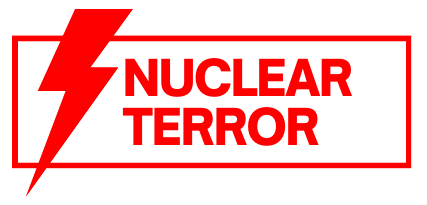So, you’re itching to know which five countries have received the prestigious recognition from the NPT? Well, my curious friend, you’re in for a treat. In this engaging discussion, we will unveil the nations that have earned the distinction of being officially recognized by the Nuclear Non-Proliferation Treaty. But hold on tight, because there’s more to this topic than meets the eye. Stay tuned as we uncover the significance of this recognition, explore the objectives and concerns surrounding the NPT, and discover the impact it has had on global peace and security. Prepare to have your nuclear knowledge expanded as we embark on this enlightening journey.
Negotiations and Signing of the NPT
The negotiations and signing of the NPT occurred over a period of several years, leading to its entry into force in 1970. The negotiation timeline for the NPT spanned from 1957 to 1968, with key players in the negotiations including the nuclear powers of France, the United Kingdom, the United States, Russia, and China. These nuclear powers played a significant role in shaping the treaty and addressing the challenges that arose during the negotiations. One of the main challenges was finding a balance between the disarmament objectives and the non-proliferation goals of the treaty. However, despite the challenges, the NPT has had a significant impact on global security. It has helped prevent the spread of nuclear weapons and has provided a framework for non-proliferation cooperation between nuclear and non-nuclear states. The NPT has also aimed to broaden access to nuclear energy for peaceful purposes, while ensuring that states comply with safeguards to prevent the development of nuclear weapons. Overall, the negotiations and signing of the NPT have played a crucial role in promoting international peace and security.
Categories of Nuclear Powers
Recognized nuclear powers can be categorized into two groups: official and unofficial.
Official nuclear powers include France, the United Kingdom, the United States, Russia, and China. These countries are recognized as nuclear-weapon states under the NPT. They have openly declared their possession of nuclear weapons and are known to have significant stockpiles. These official nuclear powers play a crucial role in shaping international nuclear policies and are subject to specific obligations and responsibilities under the treaty.
On the other hand, unofficial nuclear powers include India, Pakistan, and Israel. These countries are not recognized as nuclear-weapon states under the NPT, as they have not openly declared their possession of nuclear weapons. Their nuclear programs have raised concerns among the international community due to the potential for regional instability and the risk of proliferation. These unofficial nuclear powers operate outside the safeguards regime established by the NPT, which aims to ensure the peaceful use of nuclear energy while preventing the spread of nuclear weapons.
Regional perspectives in the Asia Pacific are particularly significant in the context of nuclear powers. The region has witnessed the emergence of both official and unofficial nuclear powers, raising questions about stability and security. Publications and resources related to the NPT provide valuable insights into the challenges and opportunities associated with nuclear power. They help promote informed discussions and better understanding of the role of non-nuclear states, concerns of unofficial nuclear powers, the safeguards regime, and the peaceful use of nuclear energy.
Objectives and Prohibitions of the NPT
Building on the categorization of nuclear powers, the objectives and prohibitions of the NPT aim to regulate the possession, transfer, and production of nuclear weapons, as well as ensure the peaceful use of nuclear energy. The NPT seeks to limit the number of nuclear powers by prohibiting states possessing nuclear weapons from transferring them or assisting non-nuclear states in acquiring them. Non-nuclear states commit to not accepting nuclear arms or producing/acquiring them.
One of the concerns within the NPT is the case of North Korea, which denounced the treaty in March 1993 but eventually remained a member. Full inspection of North Korea’s nuclear equipment is conditional, leading to uncertainty about the country’s nuclear capabilities.
To ensure compliance with the NPT, the International Atomic Energy Agency (IAEA) conducts inspections of nuclear facilities and equipment in non-nuclear weapon states. These inspections aim to verify that non-nuclear weapon states are not developing nuclear weapons and are only using nuclear energy for peaceful purposes.
Denunciation and Concerns
Denunciations of the NPT and concerns regarding compliance have posed challenges to the effectiveness and stability of the treaty. These denunciations and concerns have come from various countries and have raised questions about the NPT’s ability to achieve its objectives.
- North Korea’s denouncement of the NPT in March 1993 has been a significant concern. Although it eventually remained a member, the full inspection of North Korea’s nuclear equipment is conditional, which raises doubts about its compliance with the treaty.
- Iran and Iraq have also raised concerns due to their nuclear programs. These countries’ intentions and capabilities have been the subject of scrutiny, leading to concerns about their compliance with the NPT’s objectives.
In addition to these specific cases, the NPT’s role in the disarmament process of developing countries has been a topic of debate. Critics argue that the treaty disproportionately focuses on non-nuclear-weapon states, while nuclear-weapon states have not made significant progress in disarmament.
Despite these challenges and concerns, the NPT remains a crucial pillar of international peace and security. Its near universal membership and legally-binding obligations on disarmament and non-proliferation continue to play a vital role in preventing the spread of nuclear weapons and promoting peaceful uses of nuclear energy.
Indefinite Extension of the NPT
The indefinite extension of the NPT in 1995 marked a significant milestone in efforts to promote international peace, security, and nuclear disarmament. This decision was influenced by pressure from nuclear powers and industrialized countries, while developing countries sought a continual, total, and global disarmament process. The advantages of indefinite extension include the commitment of states to non-proliferation and the promotion of peaceful use of nuclear energy. However, implementing indefinite extension has posed several challenges. The role of nuclear powers in this process is crucial, as they have the responsibility to lead by example and make substantial progress in disarmament. Developing countries have varied perspectives on indefinite extension, with some advocating for stronger disarmament measures and others emphasizing the importance of access to peaceful nuclear technology. The impact of indefinite extension on global disarmament efforts has been mixed. While it has helped prevent the spread of nuclear weapons, progress in disarmament has been slow, with the United States and Russia still possessing the majority of the world’s nuclear weapons. Overall, indefinite extension has both advantages and challenges and requires continued international cooperation and commitment to achieve its goals.
| Advantages of Indefinite Extension | Challenges in Implementing Indefinite Extension |
|---|---|
| Commitment to non-proliferation | Slow progress in disarmament |
| Promotion of peaceful use of nuclear energy | Varying perspectives among developing countries |
| Role of nuclear powers in leading disarmament efforts |
Background and History of the NPT
After discussing the advantages and challenges of indefinite extension, it is important to delve into the background and history of the NPT to gain a comprehensive understanding of its development and significance. The negotiations process for the NPT took place from 1957 to 1968, and the treaty was signed on 1 July 1969. It entered into force on 5 March 1970. The NPT has played a crucial role in promoting disarmament efforts and ensuring the peaceful use of nuclear energy. The treaty distinguishes between nuclear-weapon states (NWS) and non-nuclear-weapon states (NNWS). The five original NWS are the United States, the Soviet Union (now replaced by the Russian Federation), the United Kingdom, France, and China. The NPT prohibits NNWS from developing or acquiring nuclear weapons and NWS from assisting NNWS in attaining nuclear weapons. It also allows for the exchange of nuclear material, technology, and expertise to NNWS for peaceful civilian nuclear programs. The NPT has near-universal membership of 191 states and has successfully limited the number of states with nuclear weapons to nine. It has legally-binding obligations on disarmament and a verifiable non-proliferation safeguards regime, making it an essential pillar of international peace and security.
Definition of Nuclear-Weapon States and Non-Nuclear-Weapon States
Nuclear-weapon states and non-nuclear-weapon states are defined by the Treaty on the Non-Proliferation of Nuclear Weapons (NPT), with the former being the five original nuclear powers and the latter encompassing all other states under the Treaty. The five recognized nuclear-weapon states are China, France, Russia, the United Kingdom, and the United States. These states are acknowledged as possessing nuclear weapons and have committed to disarmament efforts. On the other hand, non-nuclear-weapon states are those that have committed to not acquiring or producing nuclear weapons. They are subject to verification by the International Atomic Energy Agency (IAEA) to ensure compliance with the NPT.
The role of nuclear weapon states is crucial in the NPT. They have a responsibility to lead in disarmament efforts and reduce their nuclear arsenals. However, challenges persist in achieving meaningful progress in disarmament, particularly between the United States and Russia, who possess the majority of the world’s nuclear weapons.
Regional perspectives on the NPT vary across different regions. In the Asia-Pacific region, countries have been active in implementing the NPT and establishing nuclear-weapon-free zones. The NPT Review Conference serves as a platform for regional processes and discussions on nuclear disarmament and non-proliferation.
Looking towards the future, the NPT faces the challenge of ensuring its relevance and effectiveness in a changing global security landscape. The NPT must continue to adapt to emerging threats and address concerns regarding disarmament, non-proliferation, and the peaceful use of nuclear energy.
Importance and Impact of the NPT
As we shift our focus to the subtopic of ‘Importance and Impact of the NPT’, it is essential to acknowledge the significant role that the Treaty on the Non-Proliferation of Nuclear Weapons (NPT) has played in international peace and security. The NPT has had a profound impact on global security by promoting non-proliferation and disarmament efforts.
The NPT’s safeguards regime and non-proliferation measures have been instrumental in preventing the spread of nuclear weapons. It prohibits non-nuclear weapons states from developing or acquiring nuclear weapons and prohibits nuclear weapons states from transferring them to non-nuclear states. The International Atomic Energy Agency (IAEA) monitors non-nuclear weapons states to ensure compliance with these measures.
The NPT has also played a crucial role in establishing nuclear weapon-free zones, such as the South Pacific, Southeast Asia, and Central Asia. These zones contribute to regional stability and enhance the overall global security architecture.
Furthermore, the NPT has had a significant impact on disarmament efforts. While the treaty does not include a specific timeline for disarmament, it requires parties to pursue the reduction of nuclear arsenals. The NPT has provided a framework for dialogue and cooperation between nuclear and non-nuclear states, with the ultimate goal of complete nuclear disarmament.
In addition to its role in global security, the NPT also promotes the peaceful use of nuclear energy. It allows for the exchange of nuclear material, technology, and expertise to non-nuclear weapons states for civilian nuclear programs. The IAEA ensures that these programs are used exclusively for peaceful purposes and not for the development of nuclear weapons.


